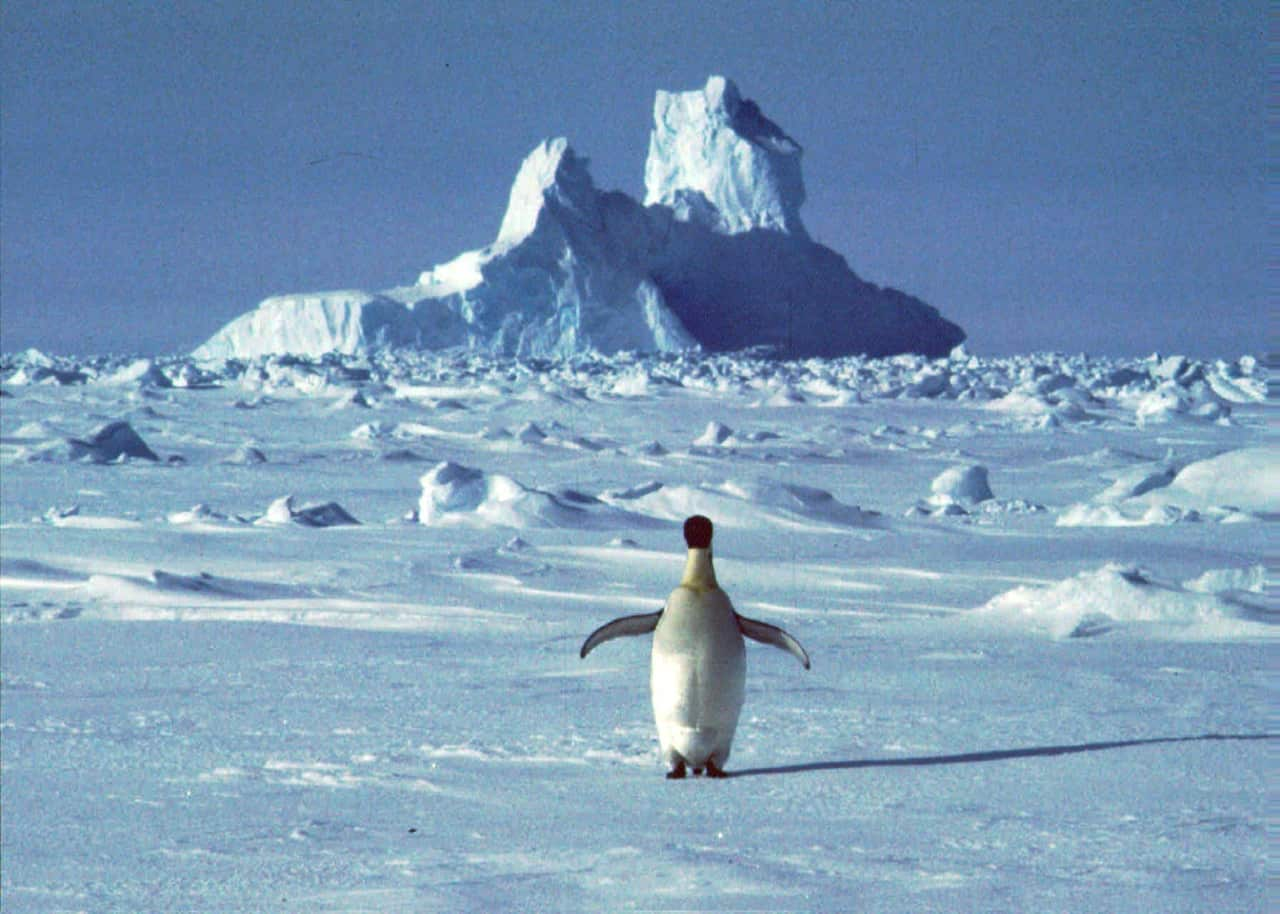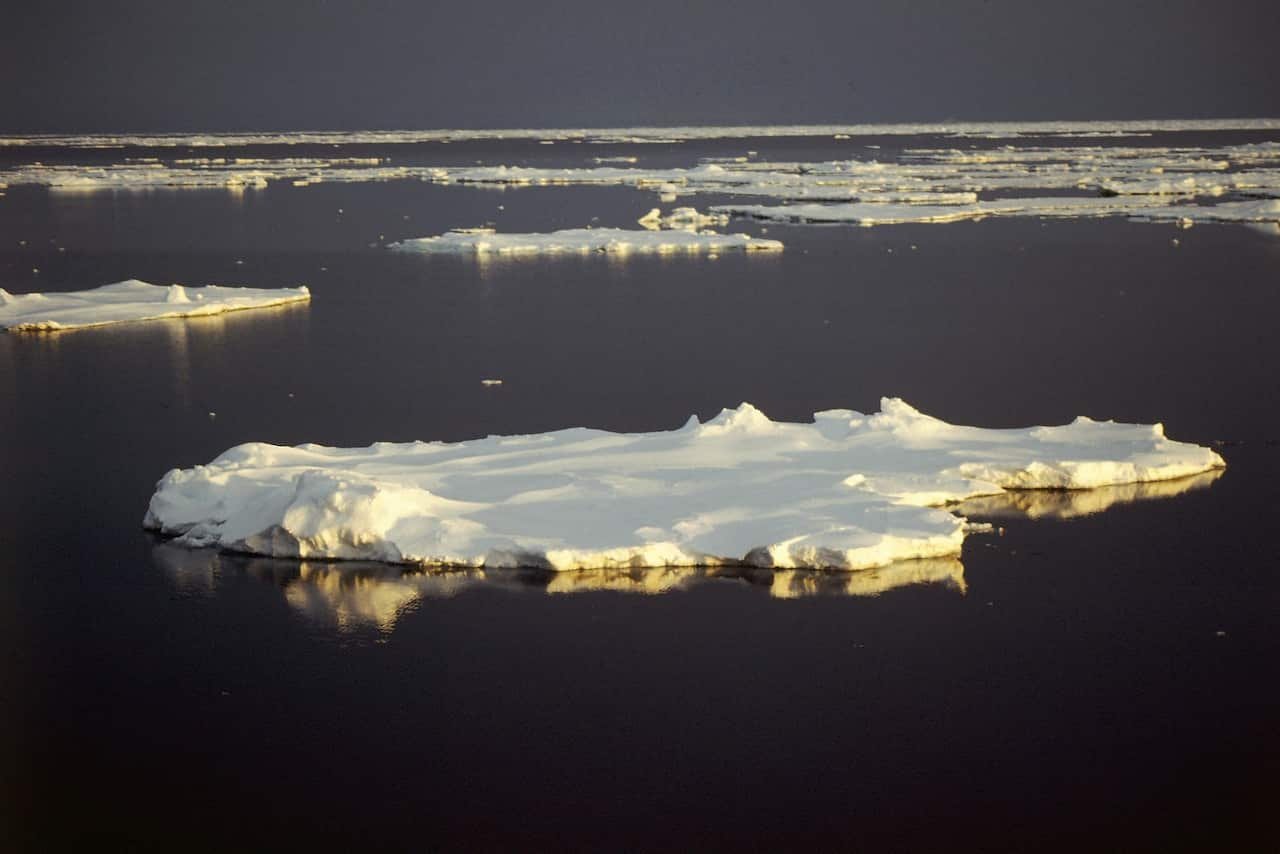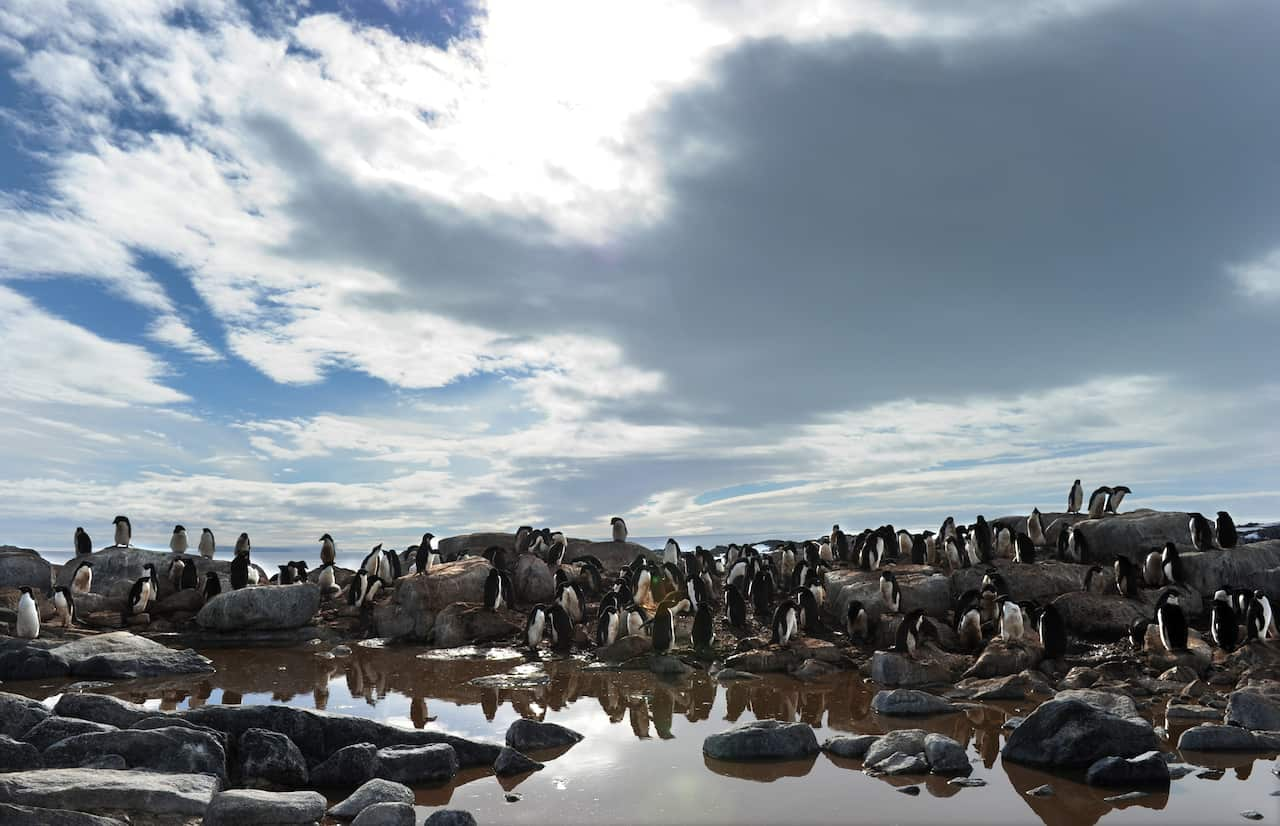Antarctica has experienced its first heatwave, with scientists fearing the long-term damage it could have on plants, animals and ecosystems.
Extreme maximum and minimum temperatures were recorded over January 23 to 26 at Casey research station in Antarctica's east, ticking the classification for a heatwave. Record high temperatures were also reported on the Antarctic Peninsula.
Record high temperatures were also reported on the Antarctic Peninsula.

The temperature in northern Antarctica hit nearly 18.3 degrees Celsius. Source: AAP
The minimum temperatures at Casey were above zero while maximums were above 7.5 degrees Celsius.
The highest maximum recorded at Casey was 9.2C on January 24, which is nearly 7C higher than the mean maximum for the station.
The morning after clinched the record for highest minimum of 2.5C.
Principal scientist from the Australian Antarctic Division Dana Bergstrom says the hot summer would most likely lead to long-term disruption.
"Most life exists in small ice-free oases in Antarctica and largely depends on melting snow and ice for their water supply," Dr Bergstrom said. "Melt water flooding can provide additional water to these desert ecosystems, leading to increased growth and reproduction of mosses, lichens, microbes and invertebrates.
"Melt water flooding can provide additional water to these desert ecosystems, leading to increased growth and reproduction of mosses, lichens, microbes and invertebrates.

An undated image of a view of Antarctica. The sea ice around Antarctica is expanding. Source: AAP
"However, excessive flooding can dislodge plants, and alter the composition of communities of invertebrates and microbial mats."
Dr Bergstrom said if ice melts completely early on, then there will be drought for the rest of the season.
Higher temperatures can also cause heat stress in plants and animals that have adapted to cold Antarctic conditions. Further studies are needed to understand the full impact of the heatwave.
Further studies are needed to understand the full impact of the heatwave.

File photo of penguins in an ice melt during nesting in a rookery at the base of the memorial cross at Mawson's Hut in Commonwealth Bay, Antarctica. Source: AAP
The scientists believe the warmer weather is linked to a break up of the ozone hole in late 2019.
The findings were published on Tuesday in Global Change Biology by a worldwide team, including scientists from the University of Wollongong, University of Tasmania and the Australian Antarctic Division.
Share

